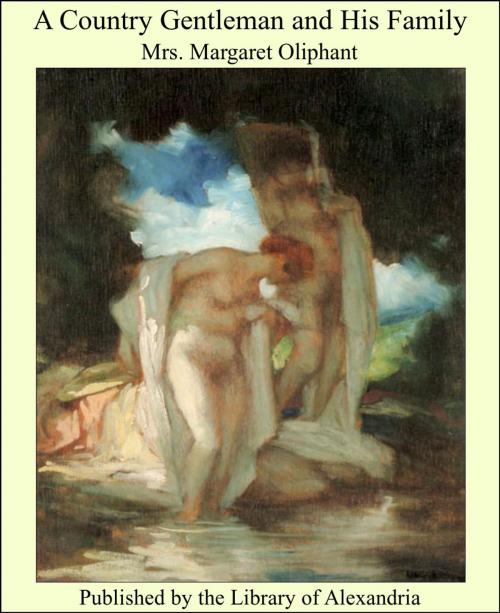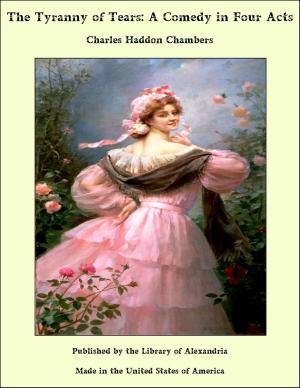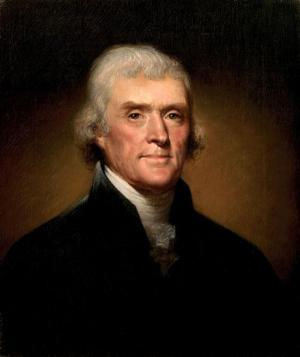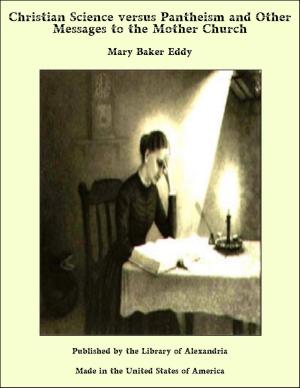A Country Gentleman and His Family
Nonfiction, Religion & Spirituality, New Age, History, Fiction & Literature| Author: | Margaret Oliphant Wilson Oliphant | ISBN: | 9781465529824 |
| Publisher: | Library of Alexandria | Publication: | March 8, 2015 |
| Imprint: | Language: | English |
| Author: | Margaret Oliphant Wilson Oliphant |
| ISBN: | 9781465529824 |
| Publisher: | Library of Alexandria |
| Publication: | March 8, 2015 |
| Imprint: | |
| Language: | English |
Theodore Warrender was still at Oxford when his father died. He was a youth who had come up from his school with the highest hopes of what he was to do at the university. It had indeed been laid out for him by an admiring tutor with anticipations which were almost certainties: "If you will only work as well as you have done these last two years!" These years had been spent in the dignified ranks of Sixth Form, where he had done almost everything that boy can do. It was expected that the School would have had a holiday when he and Brunson went up for the scholarships in their chosen college, and everybody calculated on the "double event." Brunson got the scholarship in question, but Warrender failed, which at first astonished everybody, but was afterwards more than accounted for by the fact that his fine and fastidious mind had been carried away by the Æschylus paper, which he made into an exhaustive analysis of the famous trilogy, to the neglect of Other less inviting subjects. His tutor was thus almost more proud of him for having failed than if he had succeeded, and Sixth Form in general accepted Brunson's success apologetically as that of an "all-round" man, whose triumph did not mean so much. But if there is any place where the finer scholarship ought to tell, it should be in Oxford, and his school tutor, as has been said, laid out for him a sort of little map of what he was to do. There were the Hertford and the Ireland scholarships, almost as a matter of course; a first in moderations, but that went without saying; at least one of the Vice-Chancellor's prizes—probably the Newdigate, or some Other unconsidered trifle of the kind; another first class in Greats; a fellowship. "If you don't do more than this I will be disappointed in you," the school tutor said. The college tutors received Warrender with suppressed enthusiasm, with that excitement which the acquisition of a man who is likely to distinguish himself (and his college) naturally calls forth. It was not long before they took his measure and decided that his school tutor was right. He had it in him to bring glory and honour to their doors. They surrounded him with that genial warmth of incubation which brings a future first class tenderly to the top of the lists. Young Warrender was flattered, his heart was touched. He thought, with the credulity of youth, that the dons loved him for himself; that it was because of the attractions of his own noble nature that they vied with each Other in breakfasting and dining him, in making him the companion of their refined and elevated pleasures. He thought, even, that the Rector—that name of fear—had at last found in himself the ideal which he had vainly sought in so many examples of lettered youth. He became vain, perhaps, but certainly a little self-willed, as was his nature, feeling himself to be on the top of the wave, and above those precautions for keeping himself there which had once seemed necessary. He did not, indeed, turn to any harm, for that was not in his nature; but feeling himself no longer a schoolboy, but a man, and the chosen friend of half the dons of his college, he turned aside with a fine contempt from the ordinary ways of fame-making, and betook himself to the pursuit of his own predilections in the way of learning. He had a fancy for out-of-the-way studies, for authors who don't pay, for eccentricities in literature; in short, for having his own way and reading what he chose. Signals of danger became gradually visible upon his path, and troubled consultations were held over him in the common room. "He is paying no attention to his books," remarked one; "he is reading at large whatever pleases him." Much was to be said for this principle, but still, alas, these gentlemen were all agreed that it does not pay. "If he does not mind, he will get nothing but a pass," the Rector said, bending his brows. The learned society shrank, as if a sentence of death had been pronounced. "Oh no, not so bad as that!" they cried, with one voice
Theodore Warrender was still at Oxford when his father died. He was a youth who had come up from his school with the highest hopes of what he was to do at the university. It had indeed been laid out for him by an admiring tutor with anticipations which were almost certainties: "If you will only work as well as you have done these last two years!" These years had been spent in the dignified ranks of Sixth Form, where he had done almost everything that boy can do. It was expected that the School would have had a holiday when he and Brunson went up for the scholarships in their chosen college, and everybody calculated on the "double event." Brunson got the scholarship in question, but Warrender failed, which at first astonished everybody, but was afterwards more than accounted for by the fact that his fine and fastidious mind had been carried away by the Æschylus paper, which he made into an exhaustive analysis of the famous trilogy, to the neglect of Other less inviting subjects. His tutor was thus almost more proud of him for having failed than if he had succeeded, and Sixth Form in general accepted Brunson's success apologetically as that of an "all-round" man, whose triumph did not mean so much. But if there is any place where the finer scholarship ought to tell, it should be in Oxford, and his school tutor, as has been said, laid out for him a sort of little map of what he was to do. There were the Hertford and the Ireland scholarships, almost as a matter of course; a first in moderations, but that went without saying; at least one of the Vice-Chancellor's prizes—probably the Newdigate, or some Other unconsidered trifle of the kind; another first class in Greats; a fellowship. "If you don't do more than this I will be disappointed in you," the school tutor said. The college tutors received Warrender with suppressed enthusiasm, with that excitement which the acquisition of a man who is likely to distinguish himself (and his college) naturally calls forth. It was not long before they took his measure and decided that his school tutor was right. He had it in him to bring glory and honour to their doors. They surrounded him with that genial warmth of incubation which brings a future first class tenderly to the top of the lists. Young Warrender was flattered, his heart was touched. He thought, with the credulity of youth, that the dons loved him for himself; that it was because of the attractions of his own noble nature that they vied with each Other in breakfasting and dining him, in making him the companion of their refined and elevated pleasures. He thought, even, that the Rector—that name of fear—had at last found in himself the ideal which he had vainly sought in so many examples of lettered youth. He became vain, perhaps, but certainly a little self-willed, as was his nature, feeling himself to be on the top of the wave, and above those precautions for keeping himself there which had once seemed necessary. He did not, indeed, turn to any harm, for that was not in his nature; but feeling himself no longer a schoolboy, but a man, and the chosen friend of half the dons of his college, he turned aside with a fine contempt from the ordinary ways of fame-making, and betook himself to the pursuit of his own predilections in the way of learning. He had a fancy for out-of-the-way studies, for authors who don't pay, for eccentricities in literature; in short, for having his own way and reading what he chose. Signals of danger became gradually visible upon his path, and troubled consultations were held over him in the common room. "He is paying no attention to his books," remarked one; "he is reading at large whatever pleases him." Much was to be said for this principle, but still, alas, these gentlemen were all agreed that it does not pay. "If he does not mind, he will get nothing but a pass," the Rector said, bending his brows. The learned society shrank, as if a sentence of death had been pronounced. "Oh no, not so bad as that!" they cried, with one voice















